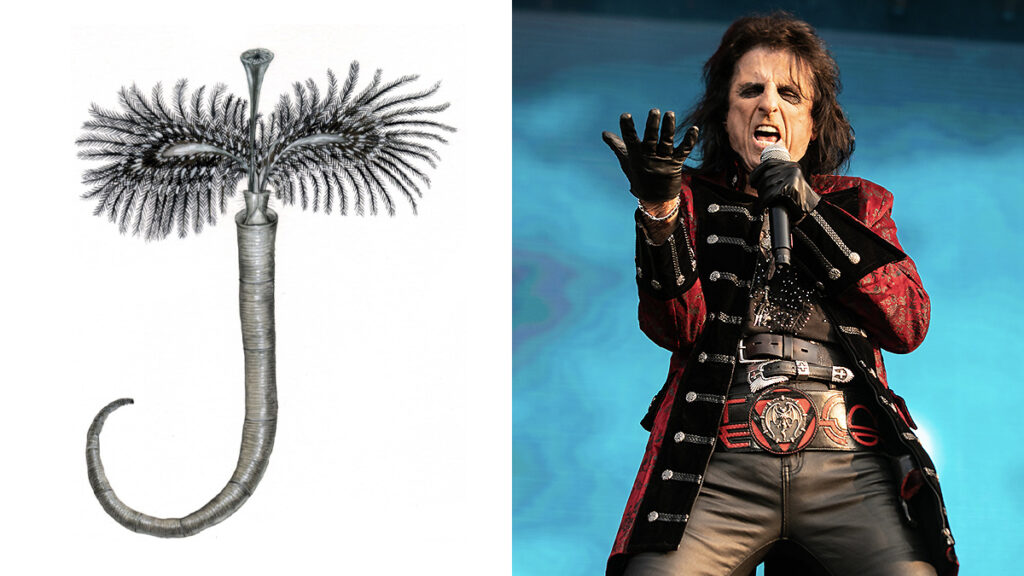A newly discovered fossil of a species of Jurassic worm has been named after shock-rock legend Alice Cooper.
Scientists have dubbed the 190-million-year-old marine worm fossil “Serpula alicecooperi” after it was discovered by amateur geologist Mette Hoftstedt on the Danish isle of Bornholm.
It was then studied by researchers Arden Basforth from the Natural History Museum of Denmark, Tomas Koči from the Natural History Museum in Prague, and Jesper Milàn and Sten Lennart Jakobsen from Geomuseum Faxe in Denmark. Hailing from the Early Jurassic period, the species of the fossil is described as a marine worm with a crown of tentacles and a protective tube-like shell in which to hide avoid predators.
“When we studied the fossil, it quickly became clear that it was a new and unknown species of serpulid worm we were dealing with,” said Milàn [via Louder].
Regarding the nomenclature, he added: “Being both a paleontologist and a huge fan of metal and rock music, I have always thought that if somebody deserved to have a fossil named in his honor, it should be Alice for his enormous impact on the musical scene during the last half decade, and his music has been firmly playing in the background during much of my research.”
In Milàn’s estimation, “Serpulid worms were pioneers in their particular lifestyle when they first evolved” and “they are still around to this very day.” Likewise, “Alice was a pioneer of the shock rock scene when he arrived during the late sixties, and he is still around to this very day.” Thus making Alice Cooper a fitting choice, with him joining other rock and metal acts, such as Black Sabbath’s Tony Iommi, Gojira, and The Ocean, who also have fossils named after them.
Meanwhile, Cooper himself is set to hit the road later this summer with Rob Zombie for a co-headlining tour supported by Ministry and Filter. Dates kick off in August, and you can get tickets here.
For more on the “Serpula alicecooperi” fossil, check out the Danish Geological Association’s published study.

